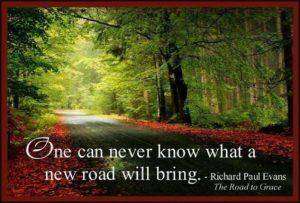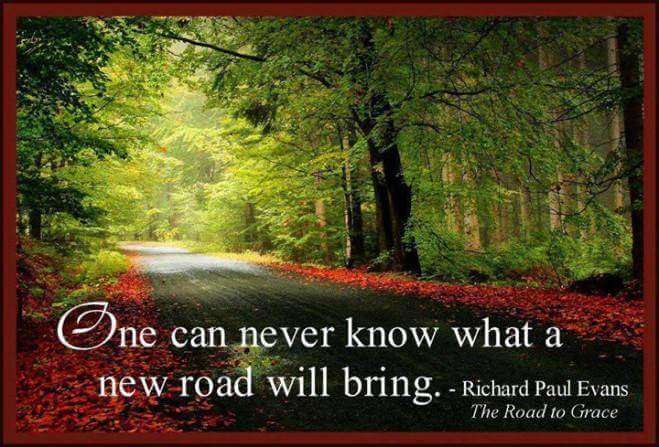
What a Nomad Needs
Written by Steven Baguley.
Like anything valuable in life, living the nomadic life takes a good amount of time and effort to make it work. It helps enormously if you’re already a certain kind of person with a certain kind of outlook. Below we present a checklist, a quick guide to the skills and strengths required from the get-go. So, to be successful, a nomad needs:
- Intuition. Choosing the nomad’s path means constantly moving around. You’ll always be jumping from one environment to the next, without a whole lot of information to go on. ‘‘Normality’’ becomes relative. Hone your intuition and learn to use it well. You’ll have to trust it more than usual. This comes with a lot of practice, and will be a lifelong lesson.
- Don’t hesitate. Once you’ve learned to trust your intuition, don’t hesitate in making decisions. You’ll rarely have all the information to make solid calls, and you’ll rarely be able to see the whole picture, so learn to jump in with both feet and know that ‘‘risk’’ is only the lack of information. Jump when you have to.
- Preparation. Obviously, it’s still vital to know that you’ll always need to read your situations and prepare for eventualities as much as possible. Be practical, but don’t ever expect to have much to go on. Gleaning information from your surroundings can be crucial. Living the nomad’s life is not a vacation, and your decisions carry a much larger resonance. Making the right calls in situations where information is hard to come by is invaluable for any nomad, and cannot be understated. Know your alternatives, dedicate time to knowing and assessing as much as you can. Do your homework.
- Don’t get too attached. Getting too attached to your surroundings will almost always end in tears. Although you’re not simply passing through places, you won’t be stopping long enough to put down roots either. Know from the beginning that you have a departure date and relish all you can. Your relationships with people, events and places will be all the more vivid for this realization.
- Be strong. Nomads get lonely! There will always be the layovers, the long bus journeys, the solitary moments where you’re faced with only your reflection and when you won’t know a soul. Be comfortable with yourself, see it as a test of strength, and find a way to tune out when you need to.
- Be positive. Attitude really is key, and being positive opens doors you hadn’t even noticed. People respond to openness and friendliness, and a smile returned brightens up even the darkest day. Most nomadic journeyers find this positivity inescapable, and as it grows you’ll notice that moving to a new place and forming a new social circle gets quicker and easier every time.
- Accept failure. Everyone makes mistakes. Don’t get frustrated. Walk it off and stay positive.
- Discipline. Travelling gets distracting, and it’s easy to get side-tracked with projects that side-swipe you once in a while. If you’re not self-motivated you’ll get derailed too. Fix your goals early and work to achieve them.
- Know yourself. Be aware of what makes you happy, and always work that into your goals and self-discipline. You won’t always have the stability or time to hope things fall into place.
- Curiosity. Ask questions! This helps immensely with knowing yourself and your surroundings, your attitude, making the right calls, and gleaning as much information as you can. People react well to curiosity, and it really shows your genuinely committed to wherever in the world you are. A nomad lives from place to place, you’re not simply a drifter. Plus, who knows what treasure you’ll find.
- Be proactive. Things don’t just come to you. Go out and make them happen. Make the most of your time, wherever you are.
The nomadic journey is one that takes time and discipline, and that’s true of both the fresh-faced journeyer and wizened vagrant. Yet with the right mental framework, eventually these challenges become ways of strengthening who you are, and the skills you’ve learned to foster through the nomad’s lifestyle are some of the most versatile and valuable tools you’ll keep with you. Trusting in both your strengths and weaknesses is one of the hardest first steps you’ll ever take, but once you’ve started walking you’ll be amazed how effortless the journey becomes.
Click on the audio to listen to a recorded version of the article



I think this is a good article… for a particular type of nomad.
I’m moving towards becoming a nomadic pastoralist with a small herd, and whoever will join me. It has similarities to your method, but there are some different limitations and obligations.
We are both nomads in our souls. That’s what’s important.
Good point! Love that differentiator — “nomadic pastoralist.” Curious how you’d define the different limitations and obligations? Is your pastoral focus more on the “group” aspect or the “seasonal movement” aspect?
Thanks for reading + commenting!